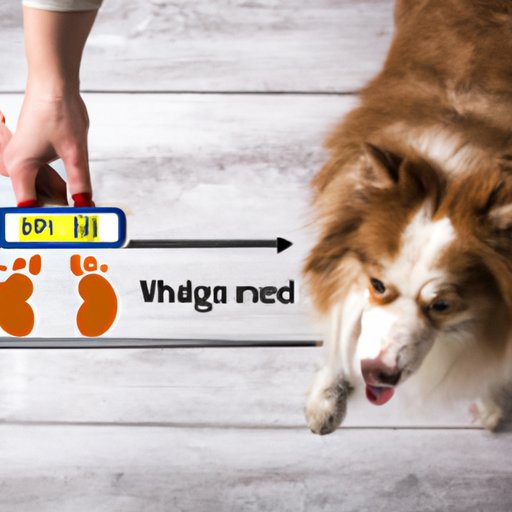
Introduction
Dogs losing weight can be concerning for pet owners. Weight loss in dogs can be due to medical conditions, stress, and lack of proper nutrition. Weight loss can cause several health issues in dogs, including muscle weakness, lethargy, and an increased risk of developing diseases. This article aims to provide essential tips on how to help your dog gain weight and maintain a healthy weight.
Diet Modifications
Modifying your dog’s diet can be one of the best ways to help them gain weight. Adding nutrient-rich foods and switching to a higher calorie dog food can be beneficial. You can also supplement your dog’s diet with oils, such as fish oil or coconut oil, to increase calorie intake. Adding boiled eggs, meat, and vegetables like sweet potatoes, green beans, and carrots can also help provide essential nutrients. It’s essential to talk to your vet when making dietary changes to ensure that your dog is getting the correct amount of nutrients.
Increase Meal Frequency
Changing the frequency of feeding can also help dogs gain weight. It can be helpful to feed your dog smaller, more frequent meals instead of two larger meals. Feeding your dog more frequently can improve their appetite and increase their daily calorie intake. However, it’s important to ensure that you don’t overfeed your dog. Overfeeding can lead to obesity, which can cause health issues of its own.
Incorporating Treats
Incorporating healthy treats into your dog’s diet can also be beneficial for weight gain. Healthy and nutrient-rich treats can help provide extra calories and nutrients. Treats like boiled chicken, cooked meat, and plain yogurt can be healthy options. It’s important to ensure that the treats are low in fat and don’t contain any added sugars.
Regular Exercise
Regular exercise is essential for dogs, even those that need to gain weight. Exercise is vital for maintaining muscle strength and tone. However, it’s important not to overdo it when it comes to exercise. High-intensity exercise can burn too many calories and cause additional weight loss. Lower intensity exercises such as short walks and light playtime can be beneficial for maintaining muscle tone without burning too many calories.
Consulting with a Vet
If you have concerns about your dog’s weight, it’s important to consult with a veterinarian. A vet can diagnose any underlying issues that may be causing weight loss and provide a plan to help your dog gain weight. Vets can also help guide dietary changes and suggest high-calorie dog food options. It’s essential to find a reputable vet and communicate effectively with them.
Conclusion
Gaining weight for dogs can be challenging for pet owners, but it’s essential for their health. Modifying your dog’s diet, increasing meal frequency, incorporating healthy treats, regular exercise, and consulting with a vet are all ways to help dogs gain weight. Remember, weight gain takes time, and it’s important to be patient during the process. By following the tips provided in this article, you can help your dog gain weight and lead a healthy life.
If you have concerns about your dog’s weight, make an appointment with your veterinarian to rule out any medical conditions. Checking with a vet before making any dietary changes is always recommended. Keep in mind that weight gain can take time, so be patient with the process.




